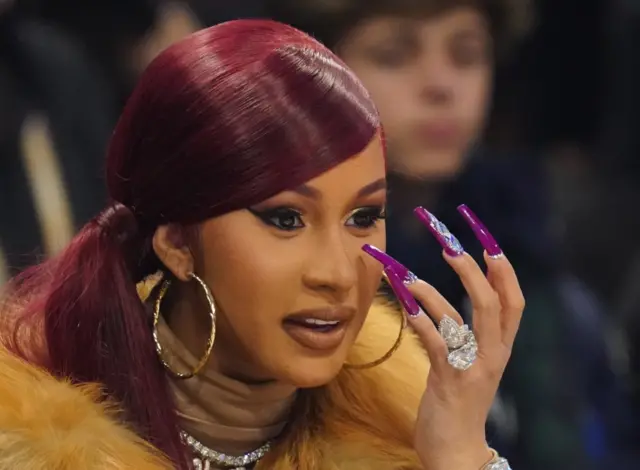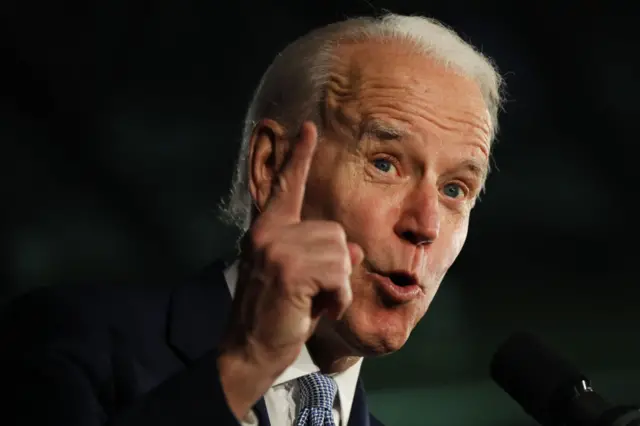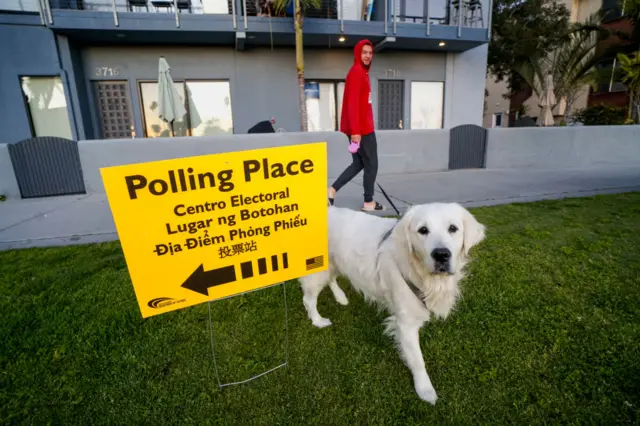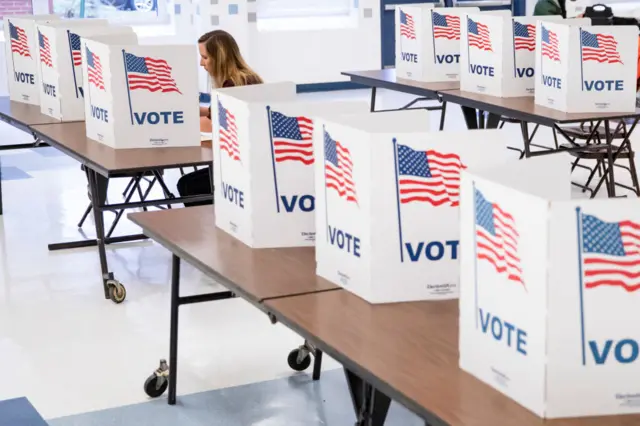A brief history of Super Tuesdaypublished at 20:10 GMT 3 March 2020
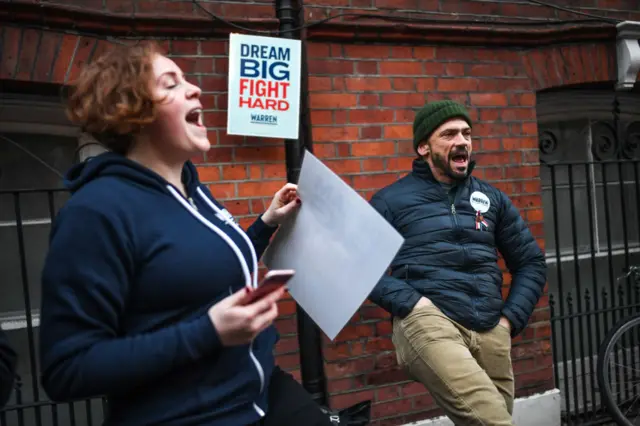 Image source, Getty Images
Image source, Getty ImagesHow did just a regular Tuesday become so super?
It hasn’t always been like this. Back in 1976, only six primaries or caucuses were held on one Tuesday (and that was in May). But over time, as states battled to be closer to the start of the primary calendar, and play a more important role in deciding the nominees, that has changed.
In 1988, Democratic leaders from southern states bandied together to hold their votes on the same day, in the hope that this would help a southern candidate lead the contest. It didn’t work out - Al Gore and Jesse Jackson split the southern vote, and Massachusetts Governor Michael Dukakis squeezed through to become the nominee. (The plan worked the next time round with Bill Clinton).
Super Tuesday has been even more super than this year - in 2008, 24 states voted on the same Tuesday, and half of all delegates were on the table in just one day. Today’s 14 states and one-third of delegates make this, relatively, a nice low-key affair.
